At Now That’s Vegan! you can find recipes that adhere to a vegan and gluten-free diet. We also share information on how to live a vegan and gluten-free lifestyle. To get you started, here are some answers to some often asked questions, followed by list of helpful resources.

What’s a Vegan?
Vegans are vegetarians who exclude from their diets meat, poultry, fish, eggs, dairy, and other products derived from animals. Some vegans even rule out the use of non-food animal products, such as leather, wool, and fur, as well as products tested on animals.
What’s Gluten?
Gluten is a protein found in certain grains and is used as a food additive for flavoring, stabilizing, or thickening foods. A gluten-free diet is a holistic medical treatment for certain allergies and diseases.
What’s a Vegetarian?
Vegetarians are people who exclude from their diets meat, poultry, game, fish, shellfish, and products derived from slaughtered animals, such as gelatin, bone, and animal rennet. There are four types of vegetarians. Lacto-Ovo-Vegetarians include in their diets eggs and dairy products; Lacto-Vegetarians include in their diets diary products, but not eggs; Ovo-Vegetarians include in their diets eggs, but not dairy; and already mentioned above are Vegans, who exclude all animal and animal product foods, and some also rule out the use of non-food animal products.
What’s a Semi-Vegetarian? Semi-vegetarians are not really vegetarians, but their diets would be entirely plant-based if not for a few exceptions. Three popular types of semi-vegetarians are Pesco-Vegetarians, also known as pescatrains, who exclude from their diets the same foods vegetarians exclude, except they include fish; Pollotarians are semi-vegetarians who exclude from their diets the same foods that vegetarians exclude, except they include poultry and fowl; and Flexitarians are semi-vegetarians who exclude from their diets the same foods that vegetarians exclude, except they occasionally include fish and meat.
What’s a Plant-Based Diet? People who include in their diets only plant foods, or mostly plant foods, are considered to be on a plant-based diet. Vegans are usually thought of as those on a plant-based diet, but the diets of other vegetarians and semi-vegetarians might also be considered plant-based, since the greater part of the foods they include in their diets are fruits and vegetables. Many on a plant-based diet also choose whole foods, and organic foods.
What’s Whole Food?
Whole foods are unprocessed foods or foods that have been minimally processed or refined, and with little or no additives or other artificial substances.
What’s Organic Food?
Organic foods are foods produced without pesticides, synthetic fertilizers, or other artificial agents, as well as farming methods that do not include antibiotics or growth hormones.
What’s Non-GMO Food?
Many who turn to whole-foods when grocery shopping also turn to Non-GMO foods. Non-GMO foods are foods that have not been genetically modified using methods that do not occur in nature, or in the ways of traditional crossbreeding.
Books
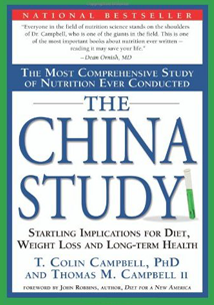 |
The China Study, by T. Colin Campbell and Thomas M. Campbell II. Why are so many Americans these days unhealthy? In The China Study, Dr. T. Colin Campbell explains the connection between nutrition and heat disease, diabetes, cancer, obesity, and the effects of aging. This is not a diet book. It’s a book that reveals the sources of our inaccurate nutritional information and dispels misinformation. Format: Paperback. |
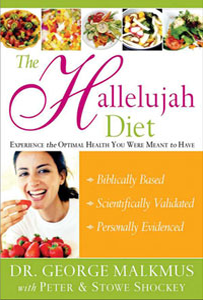 |
The Hallelujah Diet: Experience the Optimal Health You Were Meant to Have, by George Malkmus, Peter Shockey, and Stowe Shokey. In the Hallelujah Diet, Reverend George Malkmus provides nutritional information from a Biblical perspective that’s been scientifically validated. He advocates people to regain their health from the consumption healing nutrients found in plant foods, and by adopting a lifestyle that nurtures the mind and spirit. Format: Paperback. |
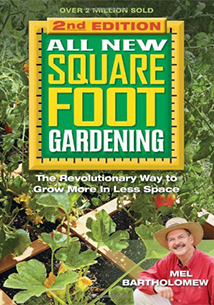 |
The All New Square Foot Gardening, Second Edition: The Revolutionary Way to Grow More In Less Space, by Mel Bartholomew. This is a unique step-by-step guide for gardening, and now in its second addition its better than ever. Mel updated his vertical gardening section, added tips on how to make gardening fun for kids, and expanded his pest control information with various options, including some homemade solutions and preventatives. This book also has helpful charts and new full-color images. Would make a nice gift for any gardener. Format: Paperback. |
Documentaries
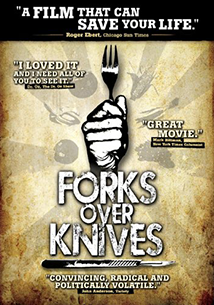 |
Forks Over knives. Many Americans are overweight, and diabetes, heart disease, and cancer are the country’s leading causes of death. In Forks over Knives, Dr. T. Colin Campbell and Dr. Caldwell Esselstyn explain how most diseases can be controlled or reversed with a plant-based diet. The film shows doctors teaching their patients how to adopt the diet as their primary approach to recovery. Format: DVD. |
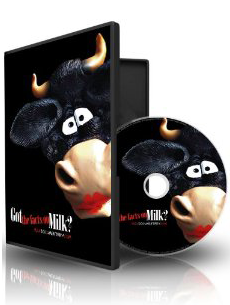 |
Got the Facts on Milk? Also knowns as “The Milk Documentary.” An award winning film that questions the health benefits of milk. Could this everyday staple promote certain chronic illnesses, such as cancer, asthma, osteoporosis, and more? Besides our health, the film addresses environmental concerns and exposes how and why industry and government encourages the consumption of milk. Format: DVD. |
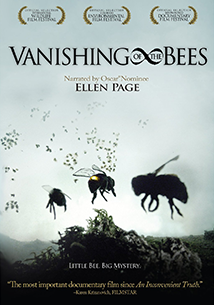 |
Vanishing Bees. Honeybees have been mysteriously disappearing; a phenomenon known as Colony Collapse Disorder. Honeybees pollinate crops to help produce our fruits and vegetables. Filmed across the US and in Europe, Australia, and Asia, this film shows scientists and beekeepers seeking answers for the sake of the bees, beekeeping, farming, and the environment. Format: DVD. |
Articles and Charts
| You’re Vegan? | Giving Up Gluten | Where’s the Protein? |
| Fruits and Veggies | Choosing a Sweetener | Grains Cooking Chart |
| Nuts and Seeds Soaking Chart | Legumes Cooking Chart |


Recent Comments